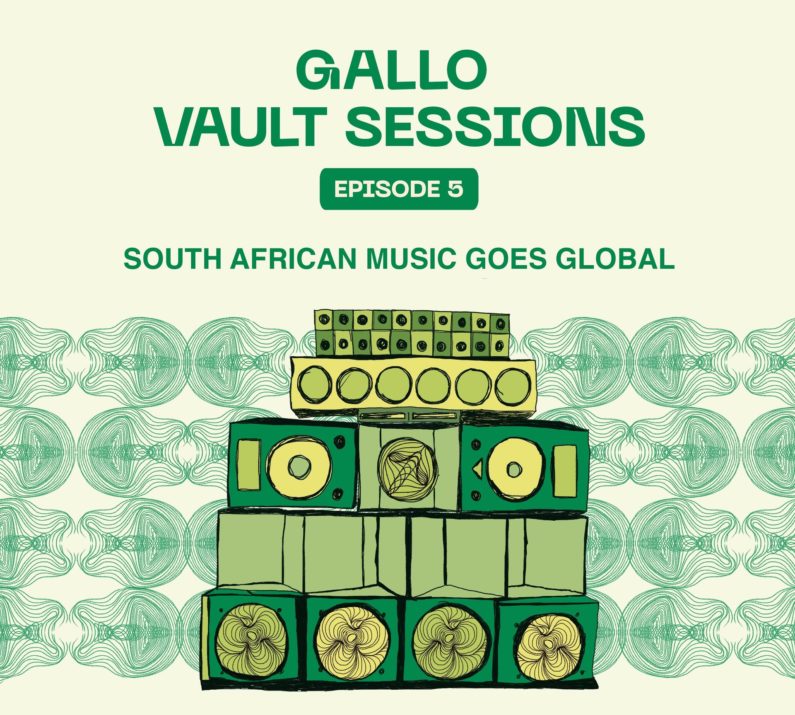
Episode 5 of the Gallo Vault Sessions explores it all
“The big issue right now and it’s no different to the issue thirty-seven years ago is we are allowing international people to colonise the music industry in Africa again and it pisses me off no end.” Antos Stella, CCA
The just released 5th episode of the Gallo Vault Sessions podcast continues the rollercoaster ride of the South African music scene– this time as it takes flight internationally. Once again we meet a cast of heroes and hustlers as it traces the often complicated journey of artists managing international audiences and global success whilst navigating the fine line between cultural appreciation and cultural exploitation.
It’s a story that begins with a global breakthrough in the 30s, to arms smuggling in the height of apartheid, Graceland in the 80s, to how an advert for baked beans resulted in multi-million sales, right up to Colombia today where bubble-gum and mbaqanga are woven into the very fabric of sound system culture.
It’s the story of Lucky Dube, Ladysmith Black Mambazo, Ray Phiri, The Boyo Boys, Solomon Linda Johnny Clegg and more. Accompanying the episode is the KONJO curated mix by Edna Martinez, which explores the Gallo releases that made it into the Pico sound systems in Colombia, and follows them with their Colombian champeta versions.
South African music’s international journey begins with the tragic story of Solomon Linda’s Mbube which reached astronomical international success in 1939, but it was only in the early 2000s that his estate finally received payment for Mbube which had been changed to Wimoweh by the US group the Tokens.

That story was to be repeated again in the 1980s when Malcolm McLaren, the English promoter, clothing designer, and musician…probably best known as the manager of the UK punk bands The Sex Pistols, and the New York Dolls, and the partner of luxury clothing designer, Vivienne Westwood, stole the music of Lulu Masilela and the Boyo Boys for his hit single Double Dutch. It was only after the intervention of Gallo records that a settlement was finally made to the artists.
In the intervening years, from the 50s right up to the 80s, South African music’s expansion started much closer to home with a vibrant touring circuit of neighbouring countries – Botswana, Zimbabwe (then Rhodesia) and Malawi. These tours in the height of apartheid also had secondary function of providing a backdrop for the smuggling of arms for the underground structures of the ANC.

But the big story of South Africa’s musical breakthrough is Paul Simon, who broke the United Nations cultural boycott, and came to South Africa in the early 80s after experiencing a period of creative depression, and hearing a bootleg tape of the record, “Accordion Jive Hits” by the Boyoyo Boys. He tracked down Gallo music who in turn introduced him to their roster of artists, many of whom, including Ray Phirri and Ladysmith Black Mambazo went on to record what became Simon’s most successful studio album Graceland.
The album proved contentious too as it skirted the fine line between appreciation and appropriation. As Don Laka, then a young musician starting out, who happened to sit in on the recording, comments “ I still believe that Ray got the raw deal on that album, because the music that he created was not credited for. Call me Al is complete Ray. It’s complete Ray.”
Johnny Clegg , Lucky Dube, Mahlathini and the Mahotella Queens and a host of others then followed onto the international scene – none more so than Lucky whose global reach is perhaps unmatched as it was not just concentrated in the West.
“In central Australia Lucky Dube remains bigger than the Beatles”, Antos Stella former Gallo Managing Director.
The podcast uncovers a little known success story too, that of the resonance of bubble-gum and Mbaqanga in the established community-oriented network of sound system culture on Afro-Colombian coast centred in Cartagena. In addition to popularising the original songs, collecting records, and phonetically matching their titles to Spanish words, part of the culture involves taking the original rhythms and producing songs with lyrics in Spanish, and adding DJ-Casio-keyboard sound effects onto the rhythms. These mixes can be heard on this month’s compilation.
The season draws to a close next month with the 6th and final episode taking a look at South African music through transition — not just politically with the dissolution of apartheid, but also with regards to technology, language, and genre!
The series is narrated by Kineta Kunutu, and researched, produced and written by artist, researcher, DJ Zara Julius at KONJO. Gallo Vault Sessions is presented by Gallo Music in collaboration with KONJO. Episodes one to four are available on select digital streaming platforms with a new episode launched on the last Thursday of the month.
